REVIEW: “Dear Hongrang”—Lost Identity, Family Secrets, and Forbidden Love
Drama: Dear Hongrang
Native Title: 탄금 (Tanggeum)
Also Known As: Song of the Geomungo: Golden Swallow
Director: Kim Hong-seon
Screenwriter: Kim Jin-a
Release: 2025
Episodes: 11
Original Network: Netflix
Genre: romance, melodrama, historical, mystery
Tags: hidden identity, siblings, slow-burn, graphic violence, revenge, abusive parent, torture, adapted from a novel, Joseon dynasty, love triangle
Where to watch:

Cast
Main Role

Lee Jae-wook as Sim Hong-rang

Jo Bo-ah as Sim Jae-i
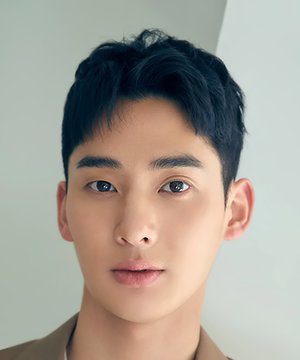
Jung Ga-ram as Sim Mu-jin

as Min Yeon-ui
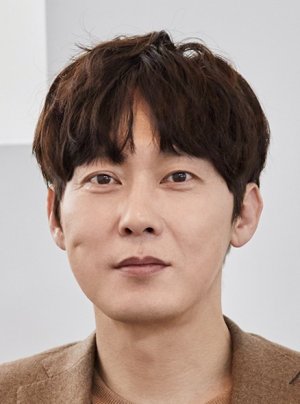

Dear viewers
There are dramas you simply watch—and then there are dramas that watch you back. The ones that linger after the final frame, whispering questions you weren’t prepared to answer. Dear Hongrang is one of those rare experiences.
Adapted from Jang Da-hye’s novel Tangeum: Swallowing Gold, this 2025 Netflix historical melodrama isn’t your typical period piece. It’s a symbolic, emotionally heavy exploration of grief, trauma, identity, power, and the desperate need to belong. It doesn’t aim to entertain in the traditional sense—it asks you to sit with silence, sorrow, and confusion. To feel before you understand.
This is not an easy watch. It is beautiful, yes—visually poetic and hauntingly stylized—but it’s also emotionally distant, often cold. It doesn’t hand you answers. It thrives in ambiguity. It demands your full attention and emotional patience, and it rarely offers catharsis in return.
The romance is controversial. The symbolism is dense. The silence speaks louder than the script. For some, this will be haunting. For others, it may feel like emotional distance disguised as depth. If you’re drawn to stories that challenge more than comfort—dramas that ache instead of soothe—then Dear Hongrang might stay with you longer than expected.
If you loved Alchemy of Souls but crave something darker, colder, and more fragmented, this might resonate. Just don’t expect warmth, resolution, or a traditional love story.
It’s not easy to love. But it’s harder to forget.
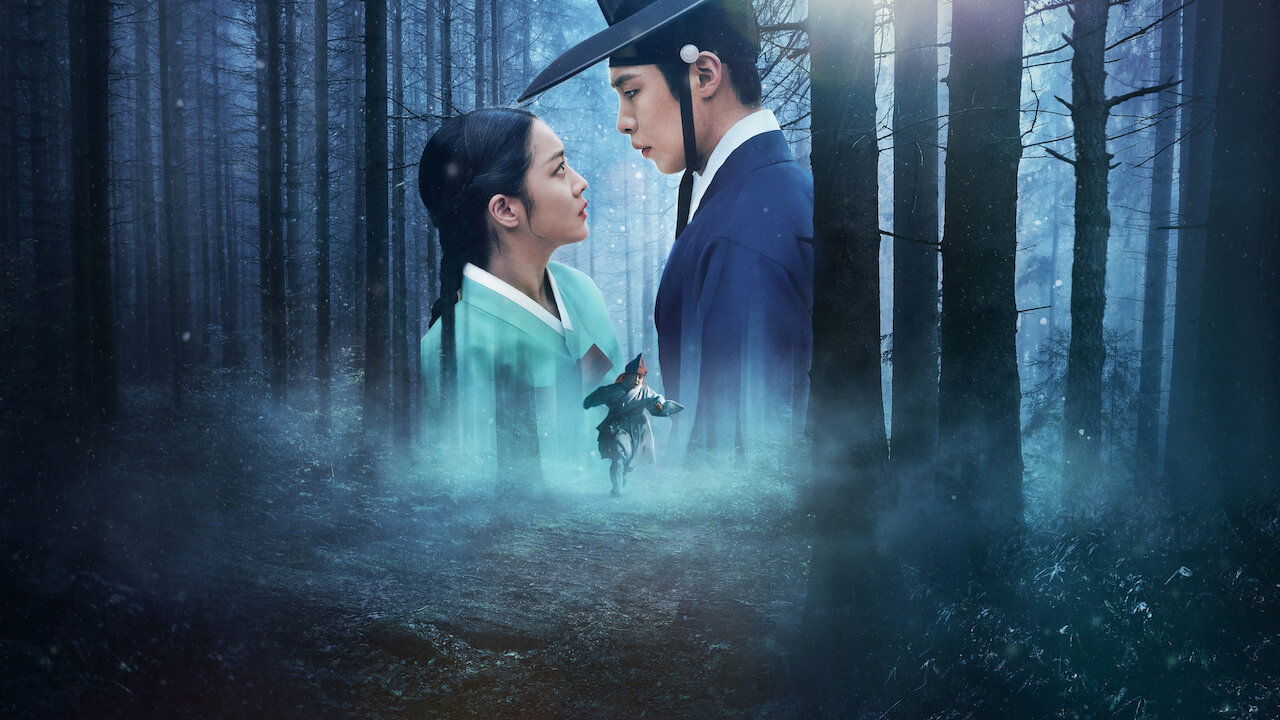
🌸 Spoiler-Free Summary
Set in the late Joseon Dynasty, Dear Hongrang tells the story of a long-lost heir whose sudden return shakes the fragile foundation of the powerful Min merchant family.
Twelve years after disappearing as a child, a quiet, scarred man (Lee Jae-wook) reappears, claiming to be the missing son. He has the right marks, the right mannerisms—but no memories. Is he truly Hongrang? And if not, what does he want?
His return awakens more than hope. It stirs buried trauma, long-suppressed desires, and unraveling truths.
- His mother (Uhm Ji-won) clings to him with obsessive hope.
- His half-sister (Jo Bo-ah), who never stopped searching, remains haunted and deeply skeptical.
- His adopted brother (Jung Ga-ram) feels his place—and identity—threatened.
What begins as a long-awaited reunion spirals into something far more unsettling: a slow-burning exploration of grief, obsession, power, and the fragile nature of identity. Dear Hongrang doesn’t just ask who this man is—it asks what his presence means to those who were left behind.
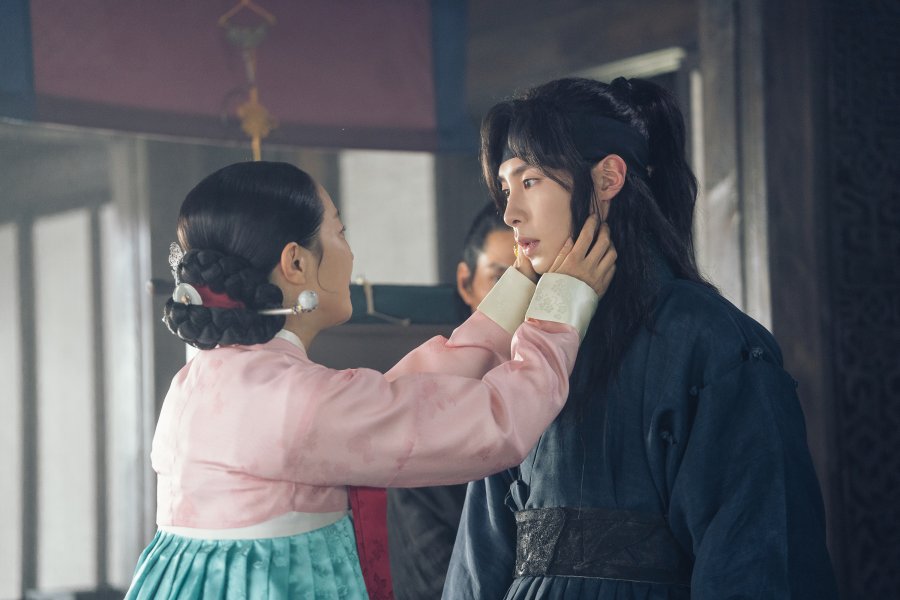
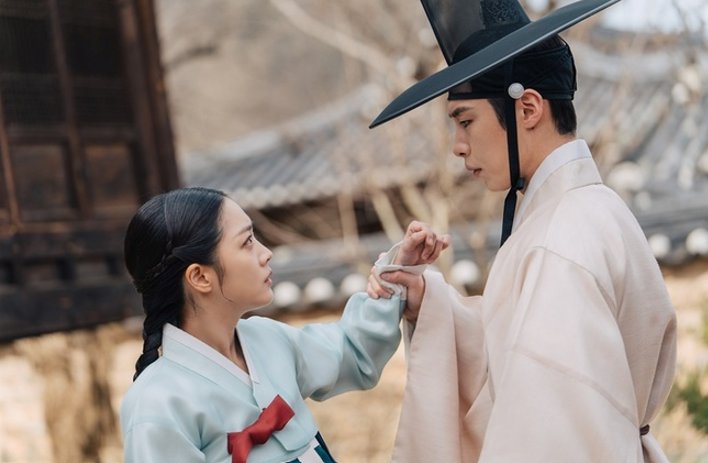
🔑 Themes
At the heart of Dear Hongrang lies a single haunting question:
What happens when a person becomes a symbol—of guilt, of hope, of legacy—rather than a human being?
Thematically, Dear Hongrang explores:
- Grief and denial: characters trapped in grief shape their entire lives around what was lost.
- Love versus obsession: especially in the tangled triangle between Jae-yi, Hongrang, and Mu-jin.
- Power and abuse: from family manipulation to ritualized violence disguised as art.
- Truth and myth: the real Hongrang is lost, but the image of him is worshipped—and weaponized.
- Inherited guilt: Trauma isn’t limited to one generation—it festers, infects, and passes down, silently shaping the next.
- The violence of memory: Memories in this drama don’t heal—they hurt. And the erasure of identity becomes its own kind of death.
When Dear Hongrang succeeds, it’s not because of its plot twists—it’s because of its emotional quiet, its use of silence and stillness to convey unbearable truths. It’s in the longing glances, the hesitant hands, the words never spoken. And sometimes, that says more than any reveal ever could.

🎭 Characters and Performances
Lee Jae-wook delivers a restrained yet captivating performance as Hongrang, embodying a silent, ghost-like figure—scarred, slow-moving, and emotionally haunted. He doesn’t portray Hongrang as a hero, but as a wound that never healed. His subtle expressions, haunted posture, deliberate movements, and masterful swordsmanship vividly convey deep inner suffering. Every glance carries emotional dissonance, leaving viewers unsure of his intentions or sincerity.
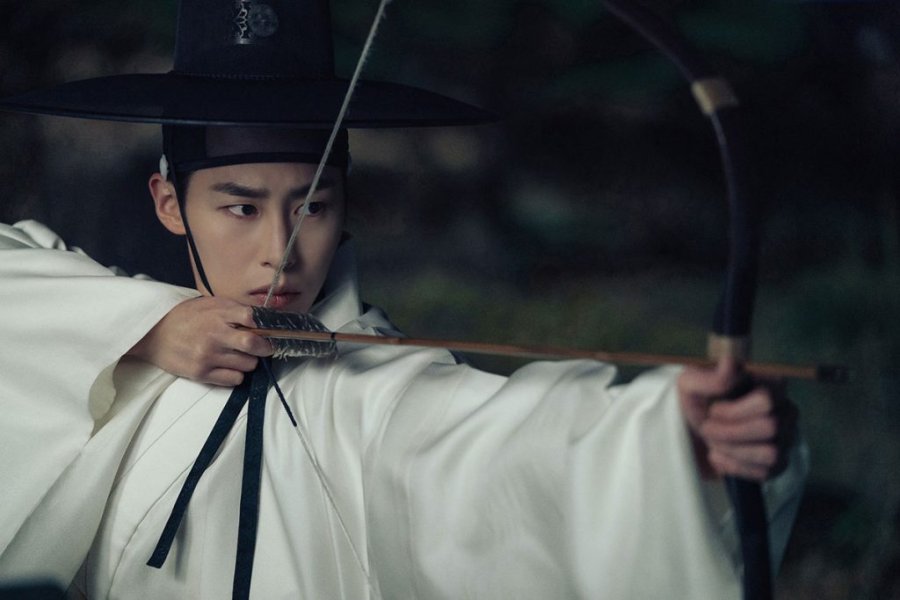
Lee’s portrayal is transformative—he doesn’t just act pain; he becomes it. Although the script limits his emotional range and leaves little room for evolution beyond a symbolic role, he still commands the screen with magnetic stillness and physical presence. From calculating imposter to broken child in a man’s body, he captures the emotional complexity of a character who doesn’t know if he deserves to be loved.
His performance is cold, restrained, yet deeply layered—a quiet masterclass in emotional subtlety and control.
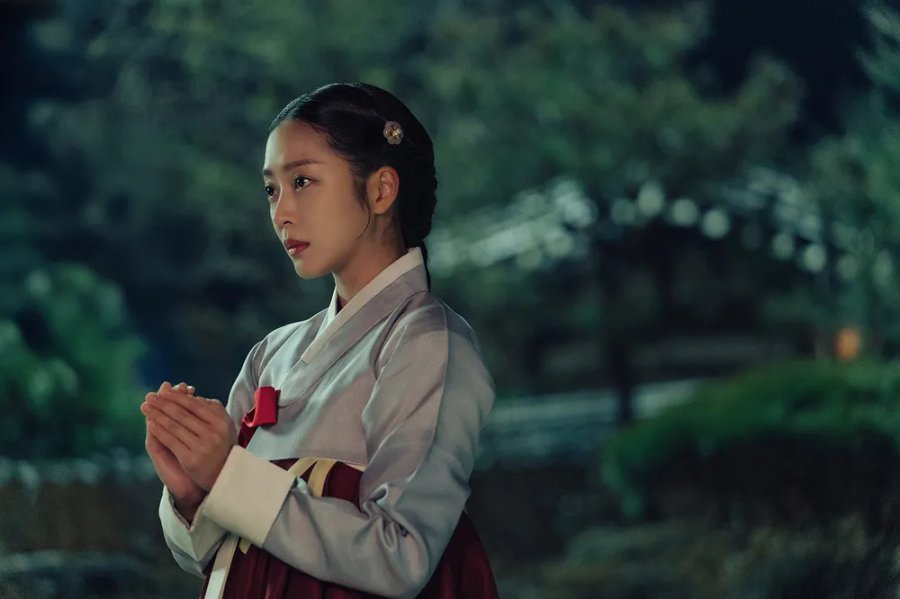
Jo Bo-ah gives a quietly powerful and emotionally nuanced performance as Jae-yi, the emotional heart of Dear Hongrang. She portrays Jae-yi’s inner conflict with restraint—skeptical, strong, yet deeply vulnerable—and convincingly captures her transformation from a passive victim to a protective and defiant figure.
Her relationship with Hongrang, though central to the drama, feels complex but restrained. Bo-ah portrays the tension between fear, longing, and loyalty with care, but their romantic chemistry doesn’t always feel fully convincing. Still, her subtle fury, hidden sorrow, and emotional depth stand out as one of the show’s greatest strengths—finally giving Jo Bo-ah a role truly worthy of her impressive range.
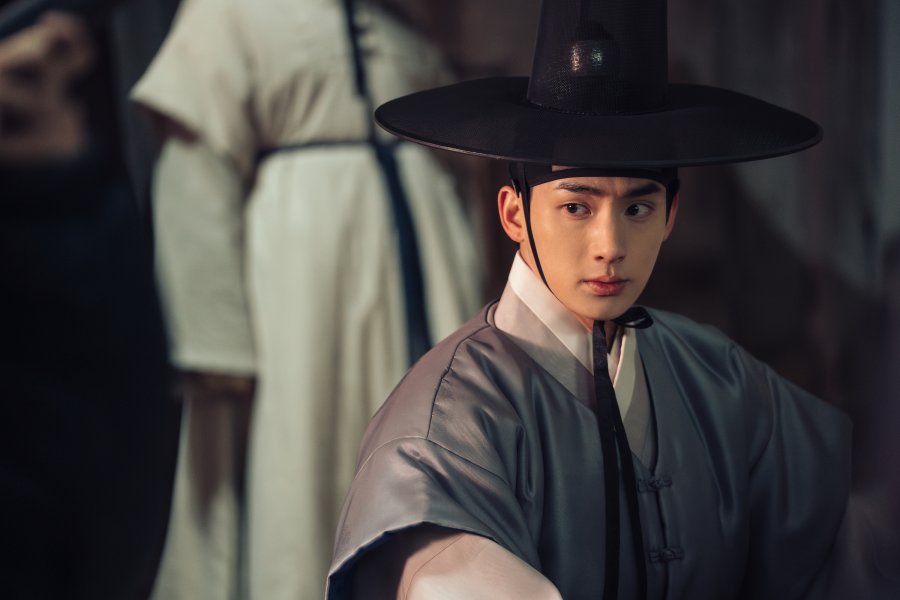
Jung Ga-ram offers a subtle, heartbreaking portrayal of Mu-jin, the loyal adopted son overshadowed by the return of the “real heir.” His performance is quietly intense, as he conveys jealousy, gratitude, and despair. Ga-ram excels at showing Mu-jin’s slow descent from dependable brother to desperate outsider. Although his arc lacks satisfying closure, his character’s emotional journey is one of the series’ strongest elements.
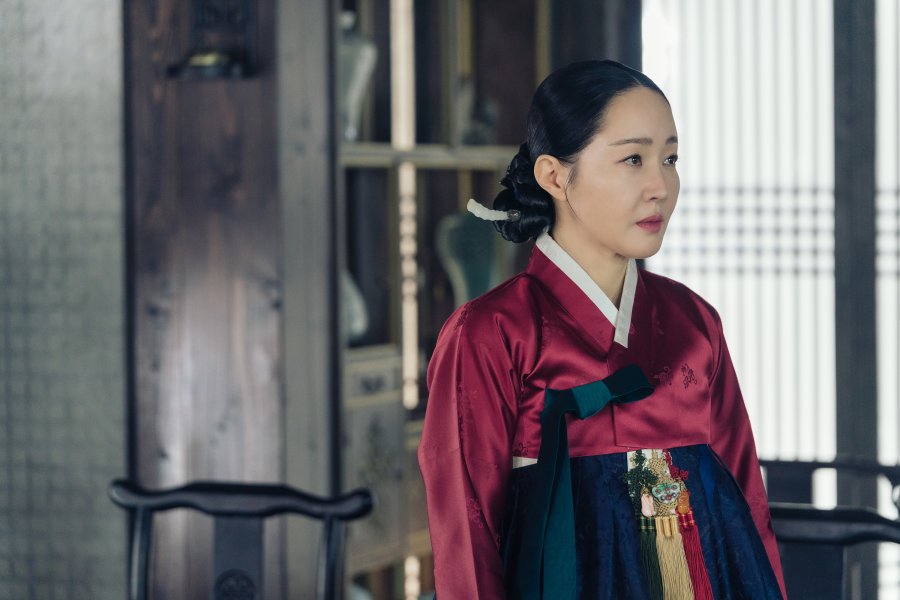
Uhm Ji-won is unforgettable as Min Yeon-ui, the unstable family matriarch consumed by grief and madness. Her performance is scene-stealing, veering effortlessly between fragile vulnerability and chilling cruelty. She captures the complexity of a grieving mother whose love has twisted into possession, making her presence consistently compelling—and often terrifying. Easily one of the most memorable characters in the entire series.
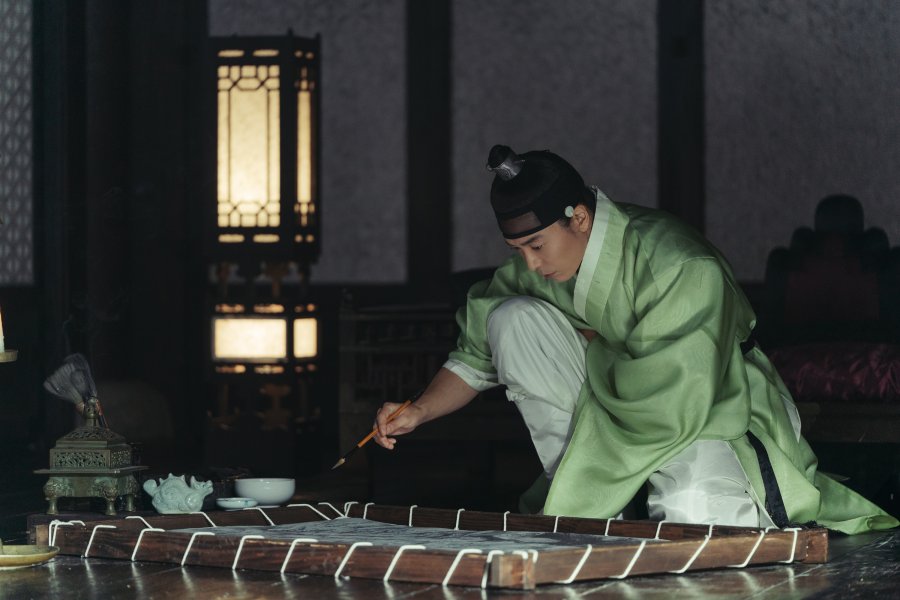
Kim Jae-wook as Prince Han-pyeong is underutilized but leaves a lasting impression. His performance blends elegance with madness, transforming what could have been a typical villain into a tragic, disturbing character. His obsession with ritualistic violence and twisted art provides some of the series’ darkest and most chilling moments.
Supporting Cast
Among the supporting characters, Lady Hee-soo offers a graceful contrast to Min Yeon-ui’s chaos, while the child actors portraying young Hongrang and Jae-yi convincingly depict innocence lost. Their trauma anchors the story emotionally, even when the adult romance falters.
🎶 Music & Soundtrack
The soundtrack is one of Dear Hongrang’s greatest strengths—beautiful, haunting, and emotionally powerful.
At its core is “Burning Petals” by 4BOUT, a dramatic, cinematic piece used in many of the drama’s most important moments. It blends traditional Korean instruments, eerie choral vocals, Mongolian throat singing, and intense strings, creating a mystical, ancient atmosphere. This music gives the drama a powerful, almost ritualistic feel, enhancing scenes with elegance and emotional depth.
In quiet scenes, the music gently breathes with the characters, subtly mirroring their inner silence without overpowering their emotions. During tense or violent moments, the music rises dramatically, clearly highlighting the intensity and feelings on screen. Often, the music expresses what characters can’t say themselves, delivering emotional clarity where the script struggles.
The romance in Dear Hongrang sometimes feels unconvincing, but the music never falters. Each piece feels intentional—even silence carries meaning. When the music swells, it doesn’t just support the drama—it makes those moments unforgettable.
Though the series has narrative flaws, the soundtrack remains consistently strong. In fact, it’s often the clearest and most honest voice in the entire story.
🎥 Cinematography and Visual Style
This is where Dear Hongrang truly excels. Visually, the drama is a masterpiece—every frame is like a painting, rich in detail, symbolism, and emotional undercurrents. From forests drenched in fog to candlelit corridors and shadow-play on faces, each shot feels carefully composed, almost sacred.
The use of color and lighting is deliberate and layered. Hongrang is often seen in shades of blue, symbolizing grief, distance, and restraint. Jae-yi’s palette shifts with her transformation—from muted browns to softer reds. Red lighting in ritual scenes evokes a surreal, hellish atmosphere, while green tones suggest sickness or corruption. Flashbacks blur like memory itself, disorienting and ethereal.
Symbolism is everywhere:
- Snow, recurring throughout, represents silence, rot, and buried trauma.
- Ink, brush, and painting serve as metaphors for power and control—to paint someone is to possess them, to turn them into an object of memory or desire.
- The visual contrast between light and shadow mirrors the emotional divide between characters.
There’s a clear inspiration from directors like Park Chan-wook (The Handmaiden), especially in the way beauty and violence intertwine. Scenes of blood on snow, or intimate acts framed like rituals, elevate the tone from historical fiction to something mythical and psychological. The camera doesn’t just observe—it judges, mourns, and records the characters, as if the visuals themselves are telling a second story.
But this style comes at a cost. At times, the series feels emotionally cold, like walking through a beautiful mausoleum. Some scenes feel over-directed, prioritizing visual perfection over narrative clarity. The aesthetic is flawless—but not always warm.
Still, Dear Hongrang is one of the most cinematic K-dramas in recent memory. It demands stillness, attention, and patience. For those willing to sit with its silence and symbolism, every shot tells a story, and every shadow carries meaning.
⚠️ The Controversy: Incestuous Undertones and Viewer Discomfort
One of the most controversial aspects of Dear Hongrang is the romantic storyline between Jae-yi and Hongrang, especially because Jae-yi believes he is her half-brother for most of the drama. Although it’s later revealed they’re not biologically related, the romantic tension begins long before that truth is known, which left many viewers feeling deeply uncomfortable.
Scenes like the lip coloring, the cave encounter, and the lap pull carry clear romantic or sensual undertones. Given Jae-yi’s belief that they are siblings, these moments feel inappropriate and ethically difficult to justify. The drama seems to be exploring trauma and forbidden desire, but it often blurs the line between emotional complexity and shock value.
The love triangle with Mu-jin, who was also raised with Jae-yi, only adds to the discomfort. His feelings are unrequited and tragic, but sometimes verge on obsession.
To its credit, the show doesn’t glamorize these relationships—they’re portrayed as painful, messy, and rooted in unresolved trauma. Still, the extended ambiguity and emotional confusion make this plotline one of the most divisive parts of the entire series.
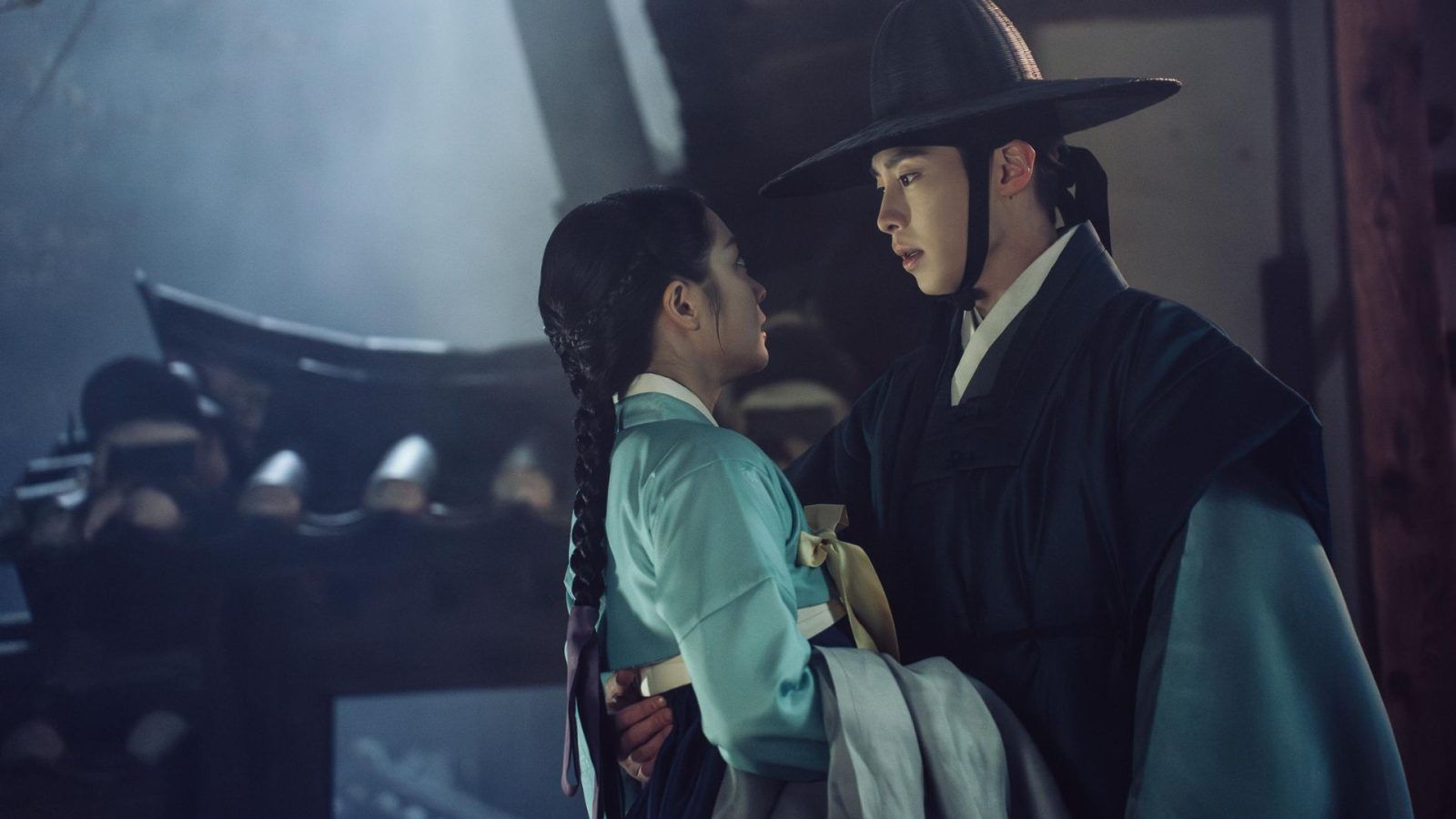
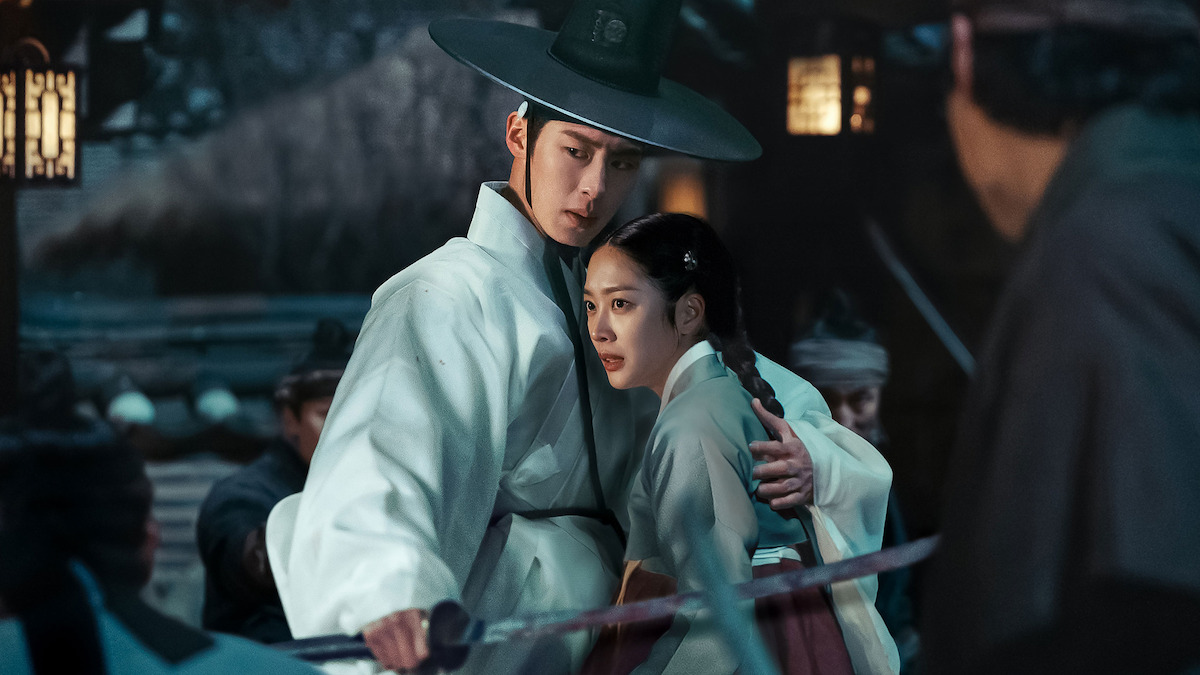
❌ What Doesn’t Work
💔 1. An Emotionally Unconvincing Romance
The romance between Jae-yi and Hongrang never fully lands. While their bond is intense, it lacks emotional buildup and feels awkward—especially since much of it develops while Jae-yi still believes he’s her brother. Their best scenes are confrontational or protective, not romantic.
The chemistry leans more melancholic than passionate. As a trauma bond, it might have worked; as romance, it often weakens the emotional weight.
🌀 2. Overstuffed Plot & Abandoned Arcs
Dear Hongrang juggles too many storylines—and drops several along the way. Promising subplots are introduced with weight, only to be discarded without explanation:
- The Snow Man, introduced as a chilling threat, vanishes with no backstory or impact.
- The painter cult arc feels like it belongs to a different show, loosely connected at best.
- Supporting characters like In-hoe, Kkot-nim, Prince Han-pyeong, and the Soul Reapers have strong potential, but are reduced to plot devices or fade without resolution.
Instead of enriching the story, these subplots dilute the core themes, leaving the narrative feeling unfocused and bloated.
🐌 3. Uneven Pacing & Editing
Dear Hongrang starts strong but quickly loses rhythm. The early episodes are immersive, but the middle drags with repetitive beats. Key reveals and emotional payoffs are rushed in the final stretch, making transitions feel abrupt.
Editing issues—like poorly timed flashbacks and delayed backstories—weaken the impact. The drama aims for poetry but often feels disjointed.
🪞 4. Comparison to Alchemy of Souls
With Lee Jae-wook in both dramas, comparisons to Alchemy of Souls are inevitable—and unfortunately, not in Dear Hongrang’s favor.
Where Alchemy had:
- Strong pacing and narrative control
- A warm, layered romance that evolved naturally
- Emotional clarity amid fantasy and chaos
- Characters with charm, humor, and heart
Dear Hongrang offers:
- A colder, more experimental tone
- Heavier symbolism but less emotional connection
- A fragmented narrative and underdeveloped character arcs
- A visually stunning world that feels emotionally distant
While Dear Hongrang is more ambitious in style and theme, it lacks the rewatchability and emotional payoff that made Alchemy beloved. One captures the heart; the other wants to break it—but may leave you more confused than moved.
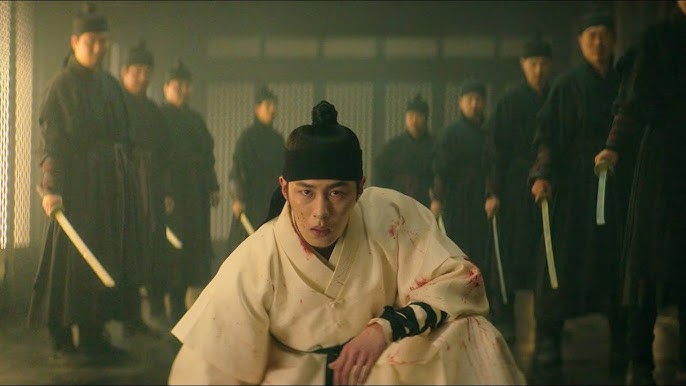

🧠 Reflection & Audience Divide
Dear Hongrang isn’t made to comfort—it’s made to ache. It asks viewers to sit with silence, grief, guilt, and confusion. For some, that emotional weight will feel profound. For others, it may come across as emotionally distant or withholding.
This is a drama that will divide audiences. Some will praise its symbolism and subtlety. Others will see it as overlong, emotionally cold, and ethically murky—especially in its romance.
If you enjoy slow, brooding stories where not everything is explained, it might resonate. But if you’re looking for narrative clarity, catharsis, or emotional payoff, you may walk away unsatisfied.
Personally, I felt torn. I admired what the show aimed for, but often felt frustrated with how it delivered. It’s the kind of drama that lingers—not always because of its brilliance, but because of its emotional heaviness and the questions it never fully answers. Whether that’s powerful or alienating depends on what you expect from a drama—do you want resolution, or are you willing to sit with silence?
✅ What Stayed With Me
Despite its flaws, Dear Hongrang leaves an undeniable imprint. It’s not a drama about answers—it’s about emotional residue. What lingers are not the plot twists, but the quiet, devastating moments that speak without words.
- Jae-yi’s shoulders finally dropping in episode 8, as if she’s exhaling for the first time in years.
- Hongrang’s posture, the way he moves like someone unsure if he’s even allowed to be seen.
- Mu-jin’s breakdown, when he realizes he will never be truly seen or loved.
- A red-lit ritual, more terrifying than most horror scenes.
- A hand hovering on a doorframe, a candlelit glance, a sob mistaken for joy but born from delusion.
Dear Hongrang doesn’t always succeed in storytelling, but in these moments, it haunts. It’s a show that wants to stay with you, not through spectacle, but through silence, atmosphere, and unspoken ache. And in that, it sometimes succeeds beautifully.
⭐ Final Verdict:
Dear Hongrang is like staring into a frozen lake—haunting, beautiful, and emotionally distant. It’s a slow-burning tragedy soaked in sorrow and style, offering stunning cinematography, an unforgettable soundtrack, and strong performances. But for all its ambition, the drama stumbles in emotional delivery and narrative cohesion.
The romance at its core feels forced and underdeveloped, weighed down by taboo and a lack of genuine chemistry. The plot is bloated with symbolic threads and side characters who fade without resolution. The pacing is uneven, and moments that should hit hard often feel rushed or emotionally flat.
And yet—it lingers.
Not because it entertains, but because it aches. It’s not the kind of drama you rewatch for comfort, but the kind you think about late at night, wondering what it was really trying to say.
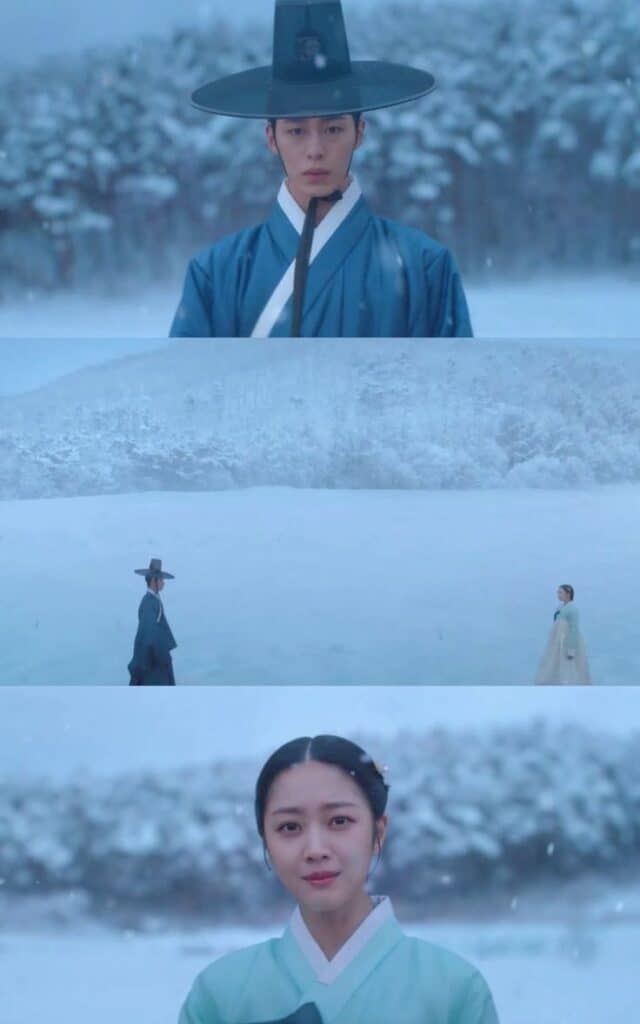
✅ Watch it if:
- You enjoy poetic, atmospheric storytelling
- You love flawed but visually striking dramas
- You’re a fan of Lee Jae-wook and don’t mind darker themes
⛔ Skip it if:
- You need satisfying romance or emotional payoff
- You prefer tight plotting and faster pacing
- You’re sensitive to taboo themes or unresolved storylines
Final Thoughts:
Dear Hongrang is not for everyone. It’s uncomfortable. It’s slow. It demands emotional and mental engagement—and offers little catharsis in return. But if you let it, it will stay with you. It will ask you to sit with trauma, memory, identity, and the mess of human longing.
Is it a masterpiece? No.
But is it worth watching?
Yes—for the atmosphere, the performances, and the quiet moments of brilliance.
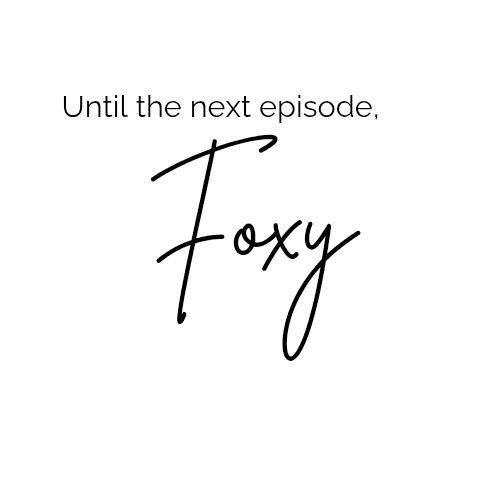
Trailer
Recommendations
Disclaimer: All images are owned by their respective creators. Used here under fair use for review purposes. Credits to Netflix and associated promotional partners.



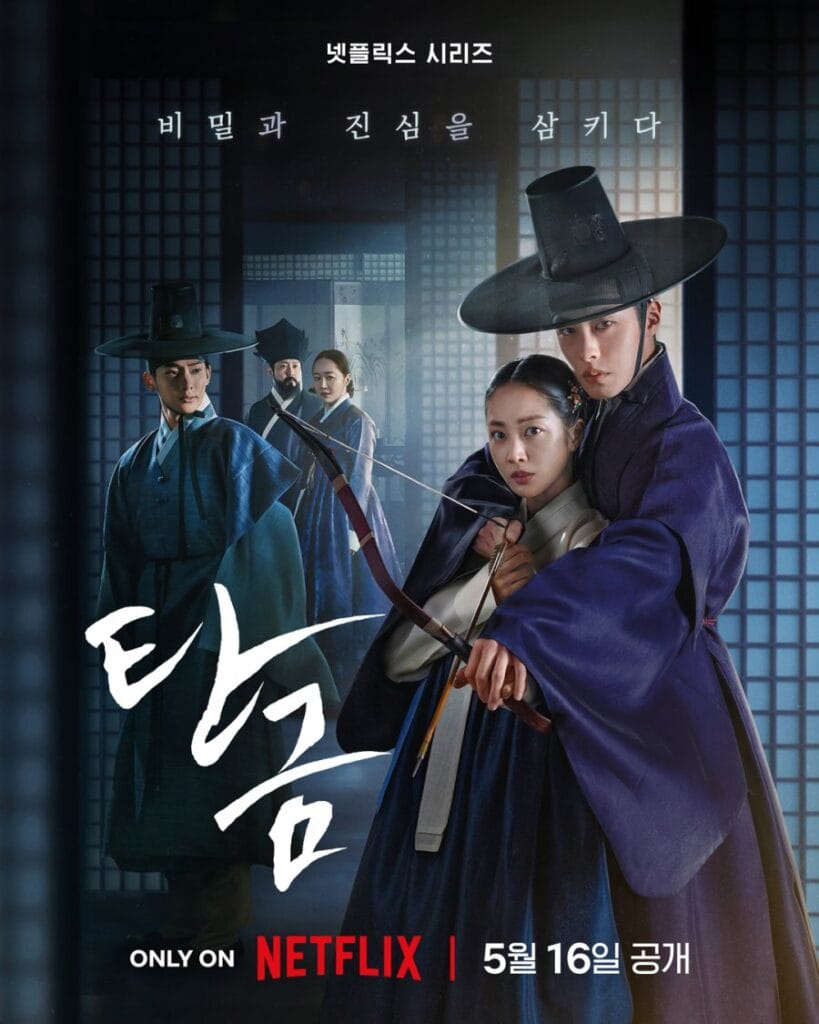
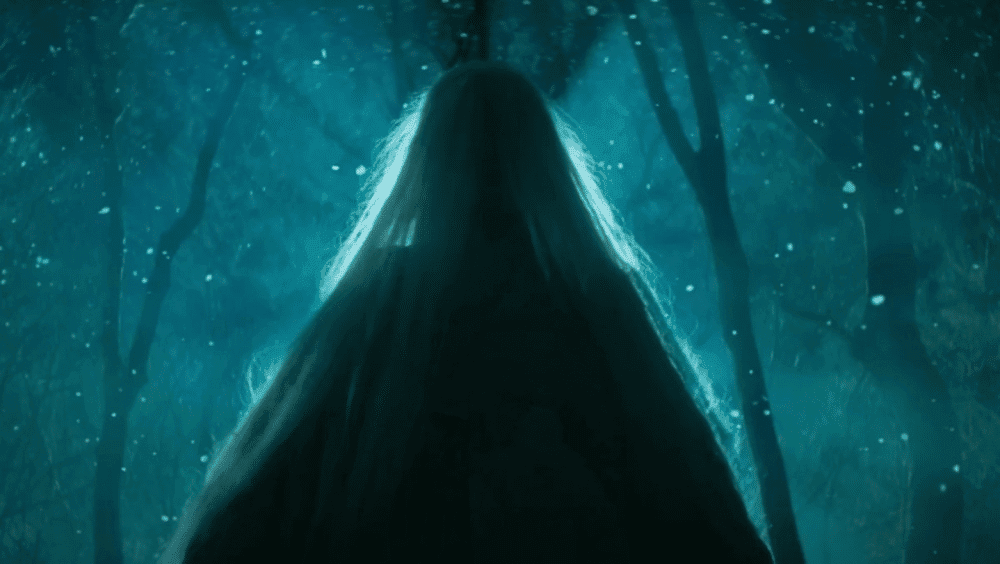
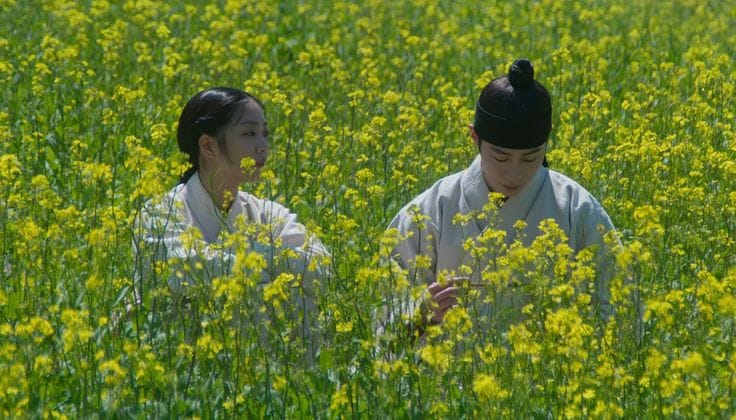
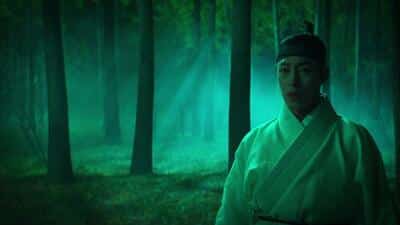
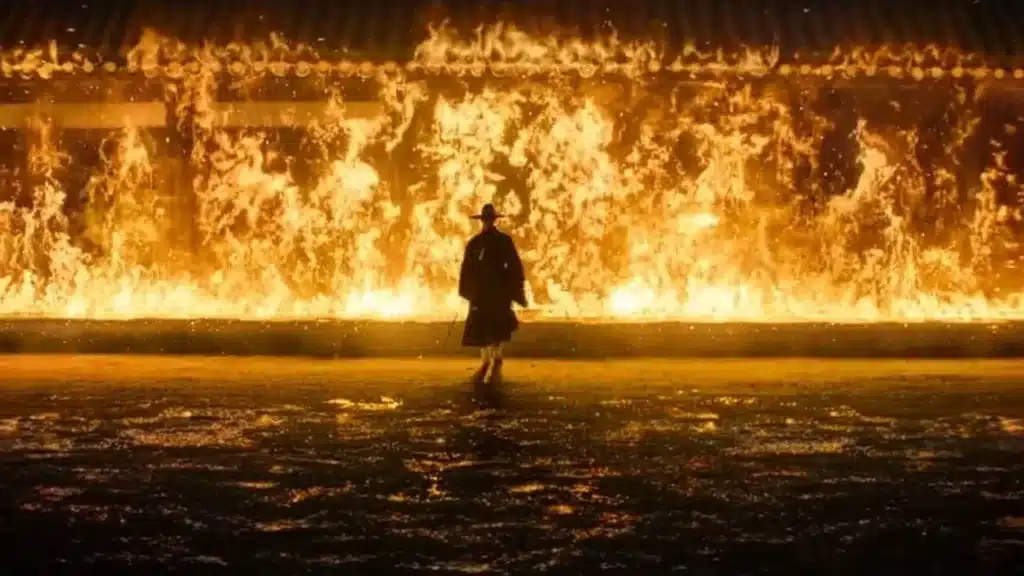
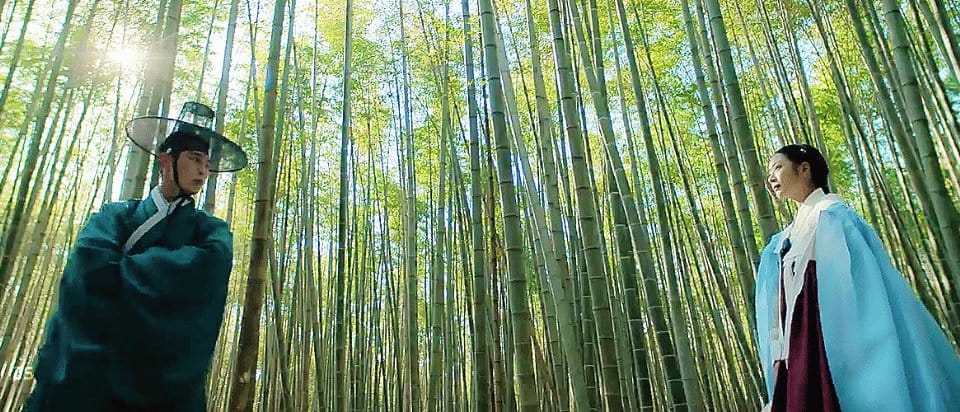
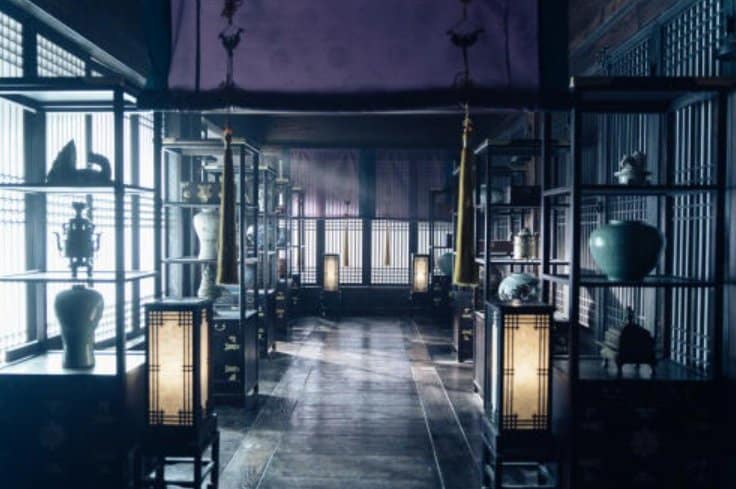
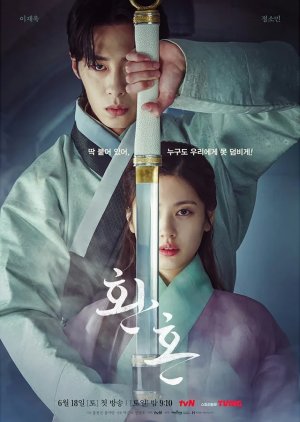
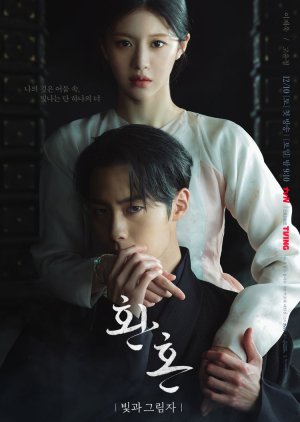
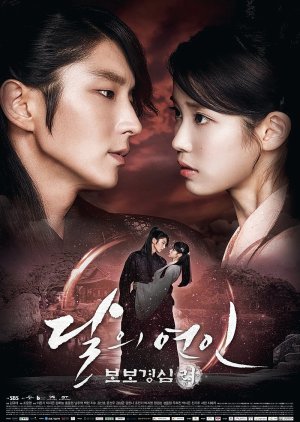
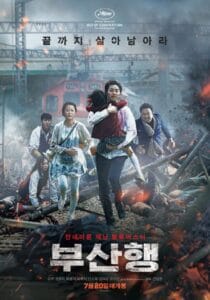
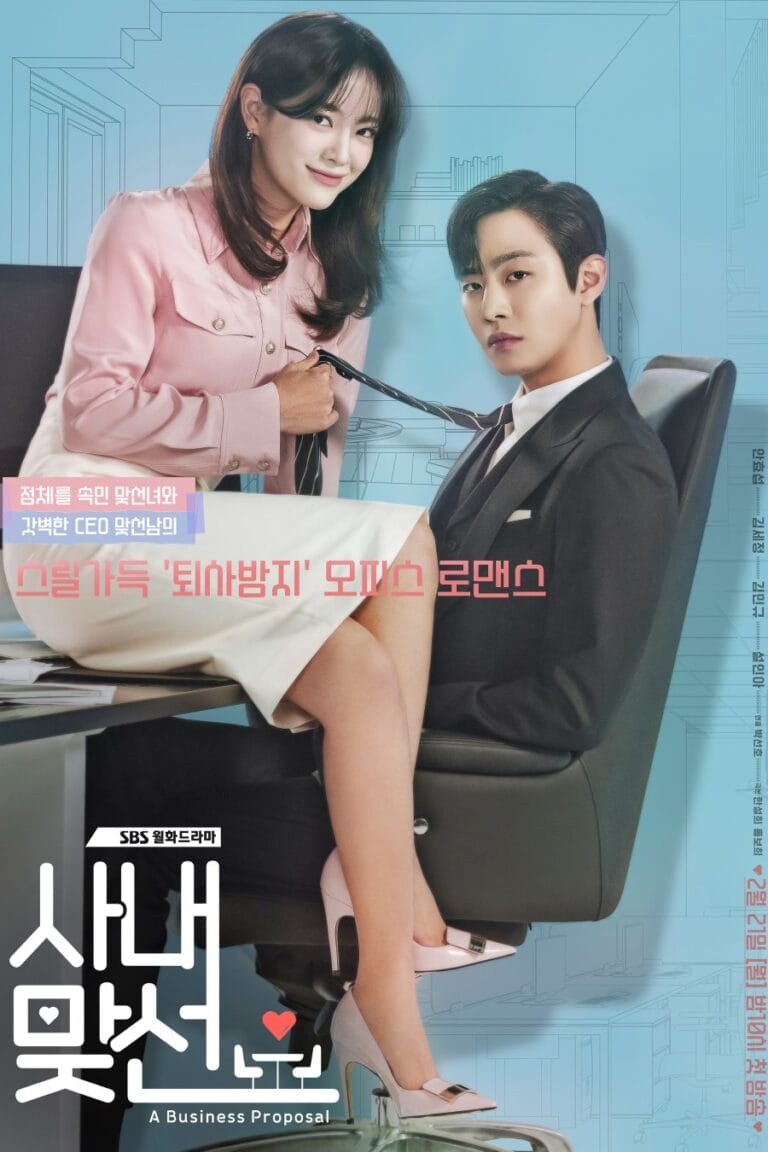





Nádherná recenze!! Upřímně ta romance byla něco…zvlášť, když my jsme jako diváci už pravdu znali…ale hlavní hrdinka ne a litovala jsem, jak ji sžírá vnitřní boj. Ten hlavní song je úžasnej, mám ho v playlistu, který poslouchám denně. Souhlasím s klady a negativy. Ke konci se to táhlo a upřímně si to zasloužilo alespoň jednu epizodu, aby to nebylo tak zrychlený a mohli se dořešit věci, co nakonec vysvětlený nebyly.
Moc děkuju! 🥰 Přesně – ta romance byla krásná a zároveň bolestivá, protože jsme jako diváci věděli pravdu dřív než ona. Její vnitřní boj jsem taky hodně prožívala. A ano, ten hlavní song je nádherný, úplně vtáhne do atmosféry (já ho mám taky mezi oblíbenými 🎶). Ke konci mám stejný pocit – jedna epizoda navíc by spoustě věcí pomohla, aby se nemusely tak rychle uzavírat. Jsem ráda, že to vidíš podobně! 💖